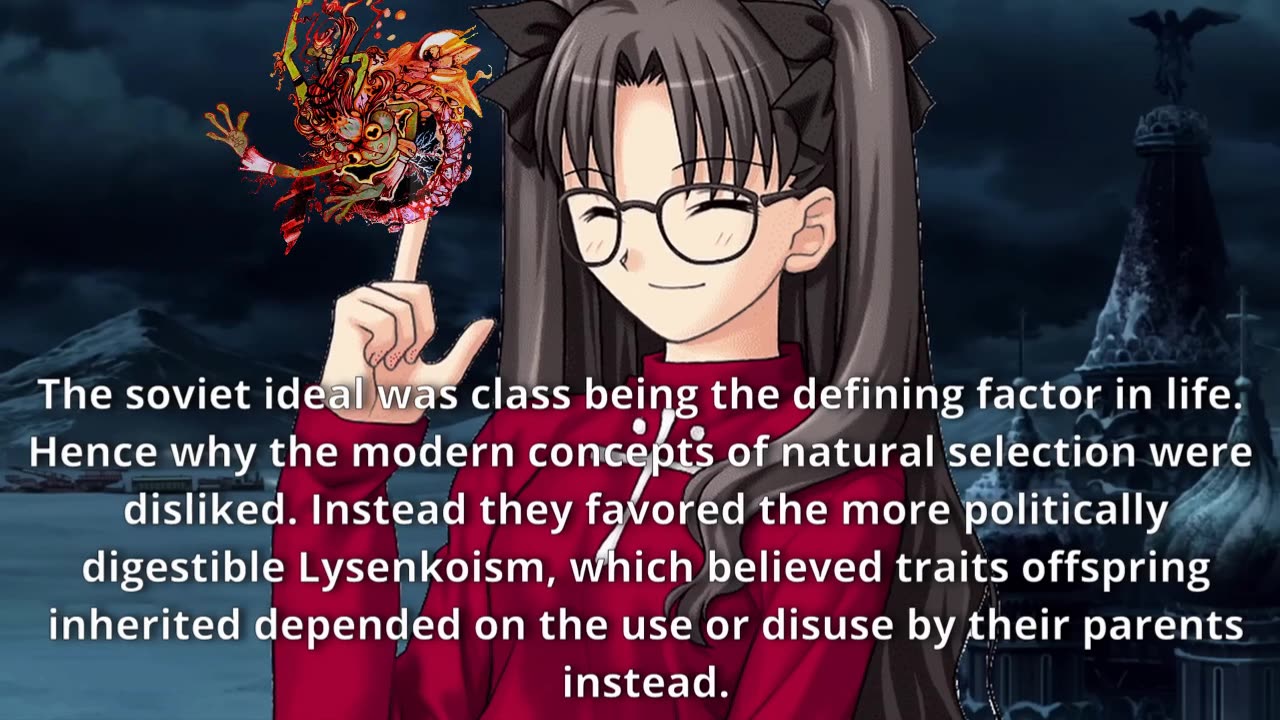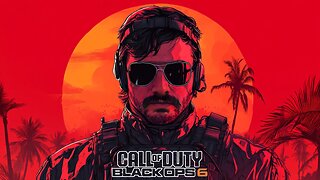Premium Only Content

Slip Slidin Away Diamonds On The Soles Of Her Shoes Paul Simon
Slip Slidin' Away Album: Greatest Hits, Etc. (1977)
Diamonds On The Soles Of Her Shoes Album: Graceland (1986)
by Paul Simon
"The nearer your destination, the more you're slip sliding away."
Paul Simon gave us Slip Slidin' Away in this story about three different people who retreat from their passions when confronted with the vagaries of life. The song shows how we can all watch our dreams pass us by and end up like the absentee father in the third verse, kissing his son as he sleeps and then heading back home. It can seem like we are fated to do so, as "God makes his plan" and "the information's unavailable to the mortal man."
Slip Slidin' Away is repetitive, with the chorus at the beginning and then showing up again four more times. Speaking with SongTalk, Simon explained that this was a flaw in the song. "The last verse is a powerful one, but the chorus, it keeps coming back to the chorus," he said. "You know what that chorus is going to say. I always felt it should be shorter, but I didn't know which verses to take out. Either the last verse or the father/child verse. But they all seemed like they had to be in there, so I left it. But I always felt that the record and the song stayed on a plateau. It didn't build."
This was one of two new songs released on Simon's Greatest Hits, Etc. album. It was released as a single backed with the other new song "Stranded in a Limousine."
The album Greatest Hits, Etc. was a turning point in Simon's relationship with Columbia Records, which barely promoted it. It peaked at #18 in the US, a surprising flop for Simon. Clive Davis, who championed Simon at the label, had left, and the new regime was more enamored with artists like Billy Joel and Paul McCartney. Simon and the new boss, Walter Yetnikoff, didn't get along, and Simon signed a deal with Warner Brothers.
Backup vocals on Slip Slidin' Away are by The Oak Ridge Boys.
Paul Simon traveled to South Africa in 1985 and recorded with various local musicians, gathering tracks that would be used on the Graceland album. While he was there, he met with the leader of a vocal group called Ladysmith Black Mambazo, and he flew them to London to record the song "Homeless." Simon and the group bonded at these sessions, and when Paul was finishing the album in New York, he brought them in to back him on his Saturday Night Live appearance on May 10, 1986. Also in town for the show were some of the musicians he recorded with in South Africa, including guitarist Ray Phiri, bass player Bakithi Kumalo and drummer Isaac Mtshali. This was quite an experience for these musicians, who lived under the racist Apartheid rule in their home country. Getting picked up in limos driven by white men was a culture shock. When they asked about visiting Central Park, Simon had to explain that they didn't need a permit - they could just walk in.
The album was originally scheduled for release that spring, but was pushed back to August. Simon figured, "Well, we're all here, we might as well do another track." Simon worked up Diamonds On The Soles Of Her Shoes with Ladysmith leader Joseph Shabalala, and they recorded it at the Hit Factory in New York.
Ladysmith Black Mambazo sing in Zulu on this track. Their refrain roughly translates to: "It's not usual but in our days we see those things happen. They are women, they can take care of themselves."
Youssou N'dour, who is a popular singer from Senegal, also performed on Diamonds On The Soles Of Her Shoes.
If you're looking for a social statement or deeper meaning in the lyrics, you might be disappointed. Paul Simon considered writing political songs for Graceland, but decided against it, since he wasn't very good at it and the point of the project was to bring the sound of South Africa to the world, not the politics. He worked very hard to lace the lyrics around the tracks, which was tricky since there was so much going on in the rhythms. The result on this song was a lot of clever wordplay and an abstract story about a rich girl in New York City and her suitors. A clue that there might not be too deep a meaning here is in the line, "and I could say 'ooo ooo ooo' as if everybody knows what I'm talking about."
Diamonds On The Soles Of Her Shoes marked the first time Ladysmith Black Mambazo sang with musicians - all their previous recordings were a cappella. By then, they were comfortable with Simon and having a great time, which showed when they sang this with Simon on Saturday Night Live, which turned out to be one of the most memorable performances in the history of the show. Introduced by Robin Williams, the group backed Simon with a joyfully choreographed stage moves and their unique vocal sound, and it brought the house down. Ladysmith became very popular, and Simon produced their next album, which was their first one released in America. They accompanied Simon on the Graceland tour and built a big enough following to tour on their own outside of South Africa in ensuing years.
Simon mentions Diamonds On The Soles Of Her Shoes as one of his best musical achievements. He says the song suits his voice very well.
Graceland Album: Graceland (1986)
Graceland is the mansion in Memphis, Tennessee where Elvis Presley lived; it is where Elvis is buried, and it is now a museum and popular tourist attraction. Paul Simon started calling his song "Graceland" after he came up with the track, which reminded him of the Sun Records sound where Elvis recorded.
Simon says Graceland is an example of "how a collaboration works even when you're not aware of it occurring." He traveled to South Africa in February 1985 and recorded with a variety of local musicians. One of these sessions was with an accordion player named Forere Motloheloa, who played on the song "The Boy in the Bubble." These sessions produced a drum sound that Simon liked, which he described in the 2012 Graceland reissue: "The drums were kind of a traveling rhythm in country music - I'm a big Sun Records fan, and early-'50s, mid-'50s Sun Records you hear that beat a lot, like a fast, Johnny Cash type of rhythm."
Simon put together a rhythm section comprised of three African musicians: guitarist Ray Phiri, fretless bass player Baghiti Khumalo, and drummer Isaac Mtshali. Simon played the drums for Phiri, and asked him to play something over it. Phiri started to play his version of American Country on electric guitar, which were chords not frequently used in African music: minor chords. When Simon asked him why he played that, Phiri responded, "I was just imitating the way you write."
Simon asked him to overdub it with a lick, and along with Khumalo and Mtshali, they came up with the basic track. Said Simon, "The track has a beautiful emptiness to it. That's what made me think of Sun Records when it was nothing but slapback echo and the song."
With Phiri playing his approximation of Amercian country, and Baghiti playing a straight ahead African groove on bass, Simon felt there was a commonality in the music, and he wrote a lyric to express that with Graceland.
At first, Simon considered the word "Graceland" a placeholder title until he could come up with something better - maybe something that had to do with Africa. After a while, he realized the title wasn't going away, and he got comfortable with it. Said Simon: "I couldn't replace it. I thought, Maybe I'm supposed to go to Graceland. Maybe I'm supposed to go on a trip and see what I'm writing about, and I did."
Simon describes that trip in the song; he drove to Graceland from Louisiana on Route 61, and the lyrics were his thoughts of the countryside: "The Mississippi Delta is shining like a national guitar." When he finally got to Graceland, he took the famous tour.
Graceland is the title track of Simon's most successful album, selling over 15 million copies and winning a Grammy for Album of the Year. It is an album focusing mostly on African music, but it also explores other forms of non-mainstream music, like Zydeco. Simon considers this song to be less African-sounding than most of the other African-based tracks. The single also won Simon his third Record of the Year award - he previously won for "Mrs. Robinson" and "Bridge Over Troubled Water."
Paul Simon's visit to South Africa was no easy task, as many nations were boycotting the country because of their racist apartheid policy. However, the United Nations Anti-Apartheid Committee supported his efforts since he only recorded with black South African musicians and did not collaborate with the government in any way. This didn't appease some critics, who felt that violating sanctions undermined efforts to effect change in the country, no matter his artistic intentions.
Regarding the lyrics, "There's a girl in New York City who calls herself the human trampoline," Simon explained to SongTalk magazine: "That line came to me when I was walking past the Museum of Natural History. For no reason I can think of. It's not related to anybody. Or anything. It just struck me as funny. Although that's an image that people remember, they talk about that line. But really, what interested me was the next line, because I was using the word 'Graceland' but it wasn't in the chorus. I was bringing 'Graceland' back into a verse. Which is one of the things I learned from African music: the recapitulation of themes can come in different places."
Explaining the World Music component of this song in the album reissue, Simon explained: "The part of me that had 'Graceland' in my head I think was subconsciously reacting to what I first heard in the drums, which was some kind of Sun Records/country/blues amalgam. What Ray was doing was mixing up his aural recollections of what American country was and what kind of chord changes I played. So the whole song really is one sound evoking a response, and that eventually became a lyric that instead of being about a South African subject or a political subject, it became a traveling song. That's really the secret of World Music is that people are able to listen to each other, made associations, and play their own music that sounds like it fits into another culture."
Several months after the initial recording sessions, Nigerian pedal steel guitarist Demola Adepoju was added to the track. This added a sound familiar to both American and African music, as the pedal steel guitar is a popular instrument in West Africa.
Graceland has stood the test of time, but when it was released as a single, it only charted at #82 in the US and didn't crack the charts in the UK. It didn't fit neatly into any radio formats like "You Can Call Me Al," so it lacked hit potential. It did find an audience as part of the album, which went to #1 in the UK and stayed on the charts for nearly two years. In America, the album peaked at #3 but stayed on the chart for 97 weeks.
According to an article in the London Times, part of Graceland is an account of Paul Simon's marriage breakup with his first wife Peggy Harper. The nine-year-old "traveling companion" he refers to is their son Harper, who three years later, at the age of 12, accompanied his father on the Graceland tour. Harper Simon, born in 1972, developed into a singer-songwriter. He teamed up with his stepmother Edie Brickell for the 2008 album Heavy Circles, and a year later released his first solo album, which is called Harper Simon.
Don and Phil Everly of the Everly Brother sang backup on Graceland. Paul Simon and his musical partner Art Garfunkel idolized the Everlys and recorded their song "Bye Bye Love" for their Bridge Over Troubled Water album. Simon said he heard "Graceland" as "a perfect Everly Brothers song."
In a 1993 interview on Larry King Live, Simon said Graceland was his favorite song.
The B-side of the single was "Hearts And Bones," which can be found on the album of the same name, released three years prior to Graceland.
Simon's second wife, Carrie Fisher, was the topic of some of the songs on his 1983 Hearts and Bones album, including the title track. They got married that year, divorced a year later, but kept an on-and-off relationship throughout the '80s. Fisher told Rolling Stone, "'Graceland' has part of us in it."
I Know What I Know Album: Graceland (1986)
"I Know What I Know" was based on a song by the group General M.D. Shirinda and the Gaza Sisters. They brought their families along, so the sessions had a party atmosphere despite Simon's bulldog work ethic. Engineers rolled tape and Paul had the group record various parts over and over. He returned to America with reels of 2-inch tape that producer Roy Halee edited into this track.
The credit on I Know What I Know reads: "Words by Paul Simon, Music by Paul Simon and General M.D. Shirinda." Simon explained in the Under African Skies documentary: "With those groups that I know, I had a clear idea of what I really liked and what I wanted to record. Those songs that they are listed as co-writing is because they are based on tracks I had heard - I could point to their record and say, 'can you play this, but change it a little here?' Whatever writing was shared we shared the credit and shared the royalties."
The female backing vocals by the Gaza Sisters get your attention of this song. They're singing in the Shangaan language, and they come in at unexpected places, which is what Simon had in mind. One of their singers, Sonti Mndebele, explained: "It's different because it's like you're singing out of tune sometimes, but that is how it should sound."
Instead of writing political lyrics to reflect the South African experience, Paul Simon focused on writing words that would sync to the tracks and tell a clever story in the process. This song is a send-up of vapid celebrity culture - especially those glitzy but emotionally bankrupt parties where posturing is the norm.
Simon says it took him an extraordinarily long time to write the lyrics for the songs he recorded in South Africa; it was a challenge finding words to compliment the complex, layered tracks. Lyrics like "don't I know you from the cinematographer's party" were written not just to tell a story, but to carefully scan with the rhythms.
-
 8:42
8:42
Psychological operations
17 hours agoTwo Pairs Of Hands Cleaning My Gun Mark Knopfler
17 -
 5:13:43
5:13:43
ItsMossy
12 hours agoHALO WITH THE RUMBLERS (: #RUMBLETAKEOVER
24.5K1 -
 1:54:08
1:54:08
INFILTRATION85
5 hours agoHi, I'm INFILTRATION
28.9K9 -
 LIVE
LIVE
GuardianRUBY
7 hours agoRumble Takeover! The Rumblings are strong
2,539 watching -
 4:28:45
4:28:45
Etheraeon
14 hours agoWorld of Warcraft: Classic | Fresh Level 1 Druid | 500 Follower Goal
40.3K -
 3:17:21
3:17:21
VapinGamers
6 hours ago $3.41 earned🎮🔥Scrollin’ and Trollin’: ESO Adventures Unleashed!
27.4K2 -
 LIVE
LIVE
a12cat34dog
8 hours agoGETTING AFTERMATH COMPLETED :: Call of Duty: Black Ops 6 :: ZOMBIES CAMO GRIND w/Bubba {18+}
175 watching -
 8:23:18
8:23:18
NubesALot
10 hours ago $4.81 earnedDark Souls Remastered and party games
25.2K -
 3:03:42
3:03:42
GamersErr0r
22 hours ago $2.04 earnedits not what you think
20.8K1 -
 7:15:50
7:15:50
Phyxicx
8 hours agoRocket League with Friends! - 11/22/2024
15.5K1